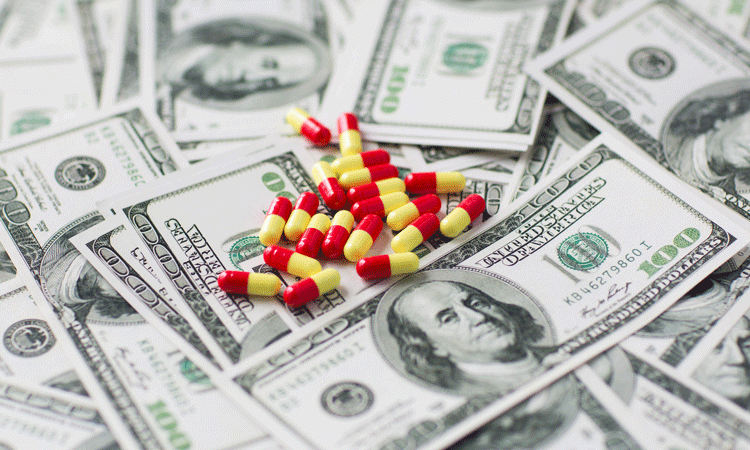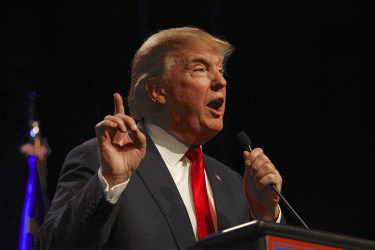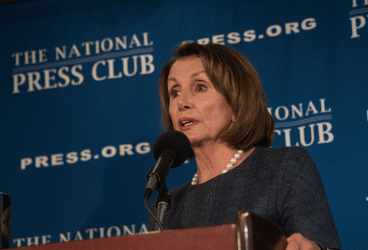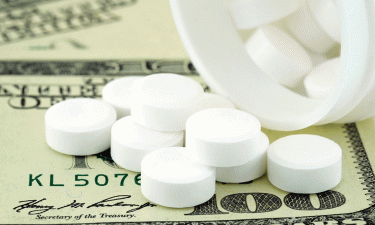Will the US pass a bill to lower drug prices?
Posted: 7 October 2019 | Victoria Rees (European Pharmaceutical Review) | No comments yet
Despite plans to lower drug prices in the US, political divisions have muddied the waters. This article examines the efforts made by those involved and the possibilities of their success.


Compared to similarly developed countries, US drug prices are almost four times higher than the average. US consumers have also been found to pay significantly more for their medication than in other countries, even when taking rebates into account.1
These findings have prompted efforts from US politicians to ensure that the country brings its drug costs down, to ease the impact on patients. As recent developments from both Democrats and Republicans has left the situation unclear, this article discusses what has happened in the lead up to this moment and what the future may hold for drug prices in the US.
Trump’s aim to lower drug prices
President Donald Trump announced earlier this year his plans to lower drug prices in the US.2 Although measures to enforce pharmaceutical companies to announce their drug fees on television advertisements failed,3 other policies were put forward by the Oval Office.


A bipartisan bill supported by the Trump administration – the Prescription Drug Pricing Reduction Act (PDPRA) of 2019 – was introduced in July.4 The act aimed to cut the price of prescription drugs for US patients, by ensuring that drug manufacturers supply documentation to the US Health and Human Services (HHS) Department to justify any rising medication prices.
A further section requires pharmacy managers to disclose information regarding negotiations for drug discounts. The bill would also allow the government to apply pressure to drug manufacturers to lower list prices and report accurate calculations of their rebate obligations.
According to the Congressional Budget Office, the proposal would save US taxpayers $85 billion in Medicare costs.4
With the bill to be debated later this year, it remains to be seen whether Trump’s plan will make a real impact upon US patients.
Pelosi’s plan to reduce medicine costs
On the Democrat side, House Speaker Nancy Pelosi has announced her strategy to lower drug prices. According to Pelosi, the “burden of out-of-control prescriptions is an issue that touches every family in America.”
Her proposed scheme would allow a minimum of 25 to a maximum of 250 drugs a year to be lowered in price”
Her proposal aims to give the federal government the power to negotiate and set a limit on the price of drugs. The plan would have an impact upon all US citizens, rather than just Medicare patients. The ruling would also bestow the government with the power to impart penalties to drug makers who do not comply. A company could face payments of up to 65 percent of the previous year’s sales for the particular drug. This would then increase by 10 percent, up to 95 percent, every quarter the business refuses to alter their charges.5
A further implementation of the draft law would require insurers and drug manufacturers to bear more of the costs of medications, rather than the government.6
Even though both bills would result in a reduction of drug prices, the plans differ in their implementation strategies.
Coming to an agreement
The Democrats and Republicans appear to agree on lowering drug prices in the US, but there is current unrest within the US government.
Although Pelosi has stated that she believes both sides of the US government can work together and bring down pharmaceutical costs, many Republicans in the Senate are opposed to granting the government the ability to negotiate drug rates.6 This is despite Trump, their party leader, supporting plans to decrease charges.


The main complication for both draft laws to come to fruition is the impeachment inquiry of Trump that Pelosi has launched.6 This division in the US government highlights potential differences and distrust; Trump has responded, saying that Pelosi is attempting to divert voters’ attention away from the inquiry by promoting her drug price bill.7
This new disaccord could spell the end of the apparent peace between the two parties. As Trump was one of the main Republican figureheads supporting the lowering of drug prices, the loss of his support could rupture any agreement. In response, Pelosi told reporters that the reduction of drug values and impeachment “have nothing to do with each other.”
So, although there is a common goal, forces outside of this may impede the US seeing a reduction in drug costs. Political divisions are making it hard for the two parties to reach an agreement on the issue.
Will drug prices be lowered?
There is still some hope despite political clashes, however. Although impeachment issues are in the background of affairs, senior White House officials and Democratic aides have been discussing legislation to diminish medication costs.8 Even though their emphasis is that these talks are not negotiations, this still indicates that progress is possible.
The government parties are not the only figures involved in the discussion, however. There is another argument which highlights that a disruption to the pharmaceutical industry in the US could restrict patient access to medicines. Pharmaceutical Research and Manufacturers of America (PhRMA) president and CEO Stephen Ubl said: “Speaker Pelosi’s radical plan would end the current market-based system that has made the United States the global leader in developing innovative, lifesaving treatments and cures.”


The height of opposition against government regulation of drug prices could be a significant factor which influences the ultimate outcome. It remains to be seen whether this may also have an impact on the success of either bill.
Summary
There have been efforts from both Democrats and Republicans to reduce the cost of drugs in the US, with the drafting of two potential bills. However, the challenges of political conflicts as well as those in the pharmaceutical industry who have an interest in maintaining the status quo, could result in no change.
Once the bipartisan bill is debated, a decision will be revealed on whether the US government can influence and reduce drug prices. This will show if a permanent change is possible to the high cost of medications in the US.
References
- A Painful Pill to Swallow: U.S. vs. International Prescription Drug Prices [Internet]. Waysandmeans.house.gov. 2019 [cited 4 October 2019]. Available from: https://waysandmeans.house.gov…
- US government takes steps to reduce drug costs [Internet]. European Pharmaceutical Review. 2019 [cited 7 October 2019]. Available from: https://www.europeanpharmaceuticalreview.com/news/92618/us-government-takes-steps-to-reduce-drug-costs/
- Judge overrules Trump effort to advertise drug prices [Internet]. European Pharmaceutical Review. 2019 [cited 7 October 2019]. Available from: https://www.europeanpharmaceuticalreview.com/news/92880/judge-overrules-trump-effort-to-advertise-drug-prices/
- Grassley, Wyden Introduce Major Prescription Drug Pricing Reform to Lower Costs for Americans | The United States Senate Committee on Finance [Internet]. Finance.senate.gov. 2019 [cited 4 October 2019]. Available from: https://www.finance.senate.gov/chairmans-news/grassley-wyden-introduce-major-prescription-drug-pricing-reform-to-lower-costs-for-americans
- Pelosi’s Drug Plan Would Let U.S. Negotiate Prices of 250 Medications [Internet]. Nytimes.com. 2019 [cited 4 October 2019]. Available from: https://www.nytimes.com/2019/09/19/us/politics/pelosi-drug-prices.html
- Pelosi’s Drug Prices Proposal [Internet]. CNN. 2019 [cited 4 October 2019]. Available from: https://edition.cnn.com/2019/09/19/politics/pelosi-drug-prices-proposal/index.htm
- Trump and Pelosi aides talk drug costs despite impeachment [Internet]. AP NEWS. 2019 [cited 4 October 2019]. Available from: https://www.apnews.com/b74f9b049a18439e94bb332dd8d8a44c
- Jr. B. Trump says Pelosi’s promise to work with him on drug price plan is ‘camouflage’ for impeachment [Internet]. CNBC. 2019 [cited 4 October 2019]. Available from: https://www.cnbc.com/2019/10/02/trump-says-pelosis-promise-to-work-with-him-on-drug-price-plan-is-camouflage-for-impeachment.html
Related topics
Drug Manufacturing, Drug Markets, Drug Supply Chain, Industry Insight, Regulation & Legislation
Related organisations
Pharmaceutical Research and Manufacturers of America (PhRMA)









